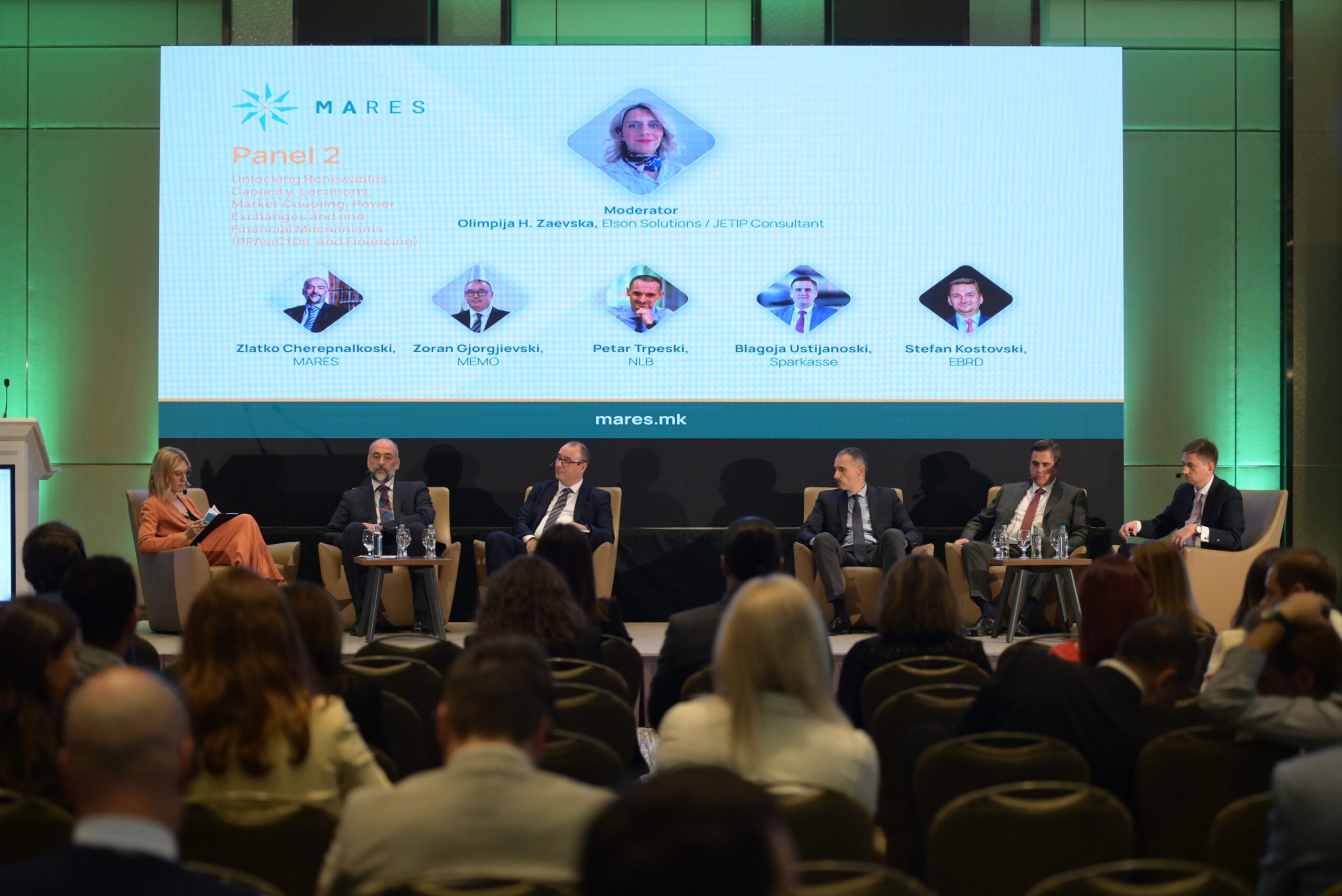
Panel 2 Key Takeaways: Unlocking Renewables – Capacity, Locations, Market Coupling, Power Exchanges and and Financial Mechanisms (PPAs/CfDs, and Financing) – MARES Conference 2024
Moderated by Olimpija H. Zaevska from Elson Solutions and JETIP Consultant, this panel summarized the key barriers to utilizing renewable energy sources (RES). Technical challenges, including grid integration and artificial intelligence solutions, were highlighted as areas requiring targeted action, alongside appropriate financial mechanisms to support these efforts. From a market perspective, insufficient market flexibility was identified as a critical obstacle.
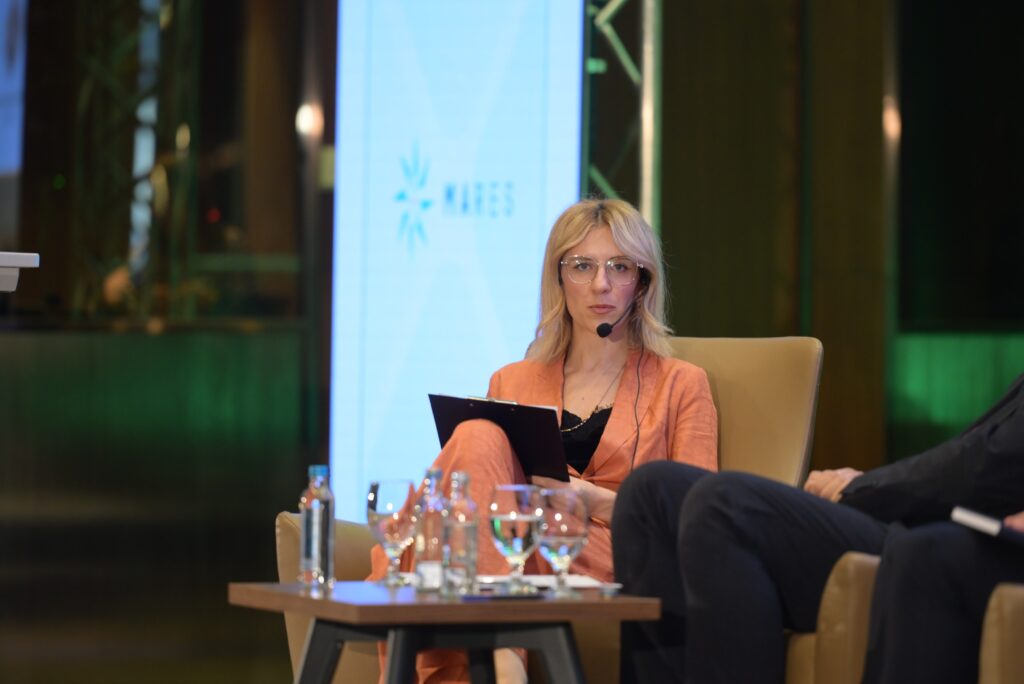
Keynote Speaker: Johannes Henkel from 50Hertz shared Germany’s experience in renewable energy development, stressing the importance of stable financial models, regulatory consistency, and long-term investment support to stimulate new energy capacity. Henkel emphasized transparency as a cornerstone for building investor trust.
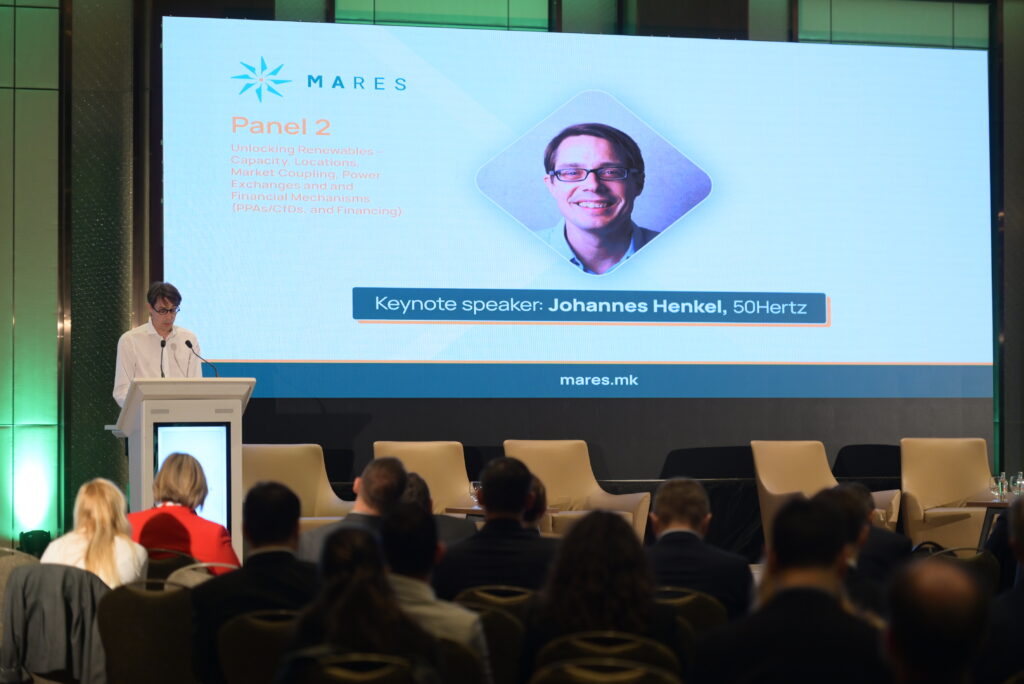
Representatives from the banking sector discussed the evolution of financing models for green development, emphasizing the role of green bonds in achieving net-zero targets. While banks expressed caution regarding investments in emerging technologies, they also underlined their ambitious goals for increasing RES project financing, aiming to expand the share of such projects in their overall investment portfolios.
Other challenges mentioned included limited availability of construction land which is ready-to-build (with all communal taxes paid), problems with transformation of land, as well as insufficient collateral by PPA (short terms of offtake with fixed prices, low prices).
Zlatko Čerepnalkoski, Board Member of MARES highlighted significant market challenges, including limited flexibility and a regulatory framework that does not fully support renewable energy growth. He emphasized that integrating renewables into the market is crucial for their future in North Macedonia and outlined the benefits of Contracts for Difference (CfD), including secure revenues for investors, reduced risk for banks, and the potential creation of a social fund to address extreme price surges. Čerepnalkoski also pointed out the rising importance of corporate PPAs, which not only meet corporate energy demands for green electricity but also contribute to reducing carbon footprints and fulfilling ESG requirements.
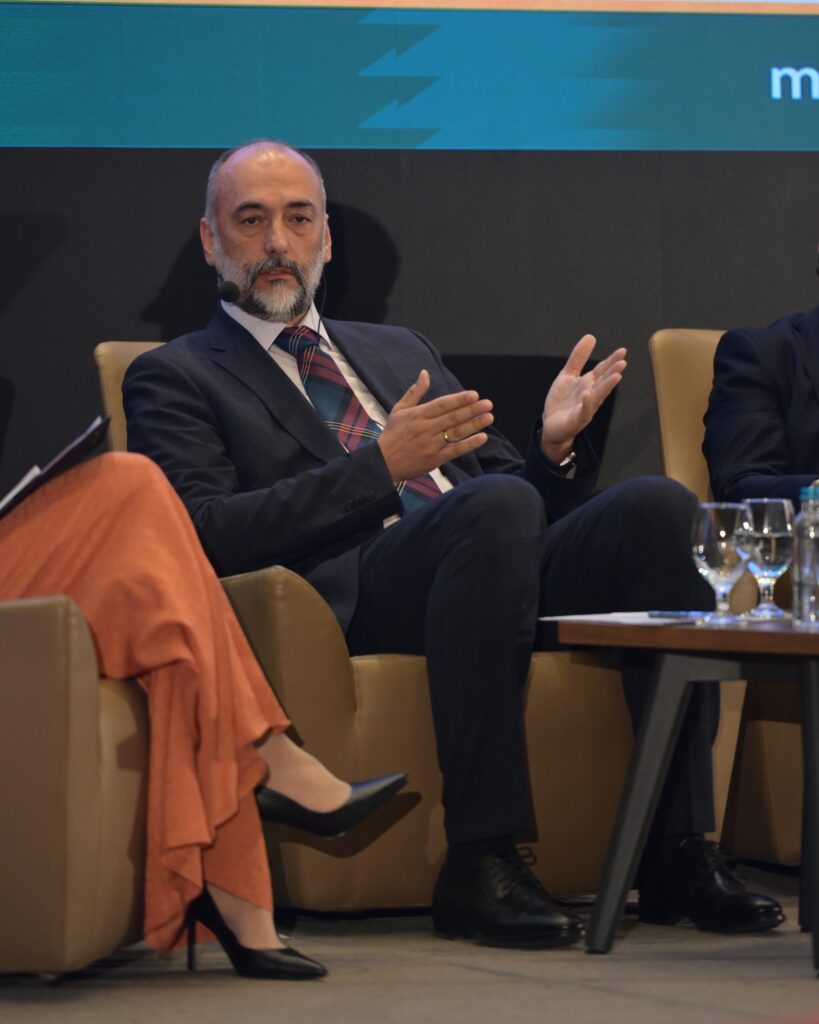
Zoran Gjorgjievski, CEO of MEMO elaborated on challenges associated with integrating more renewables into the market, particularly the impact of seasonal variations in energy production and demand. He spoke about market coupling efforts, focusing on linking with EU member states, and projected that market coupling and intra-day market operations could realistically begin by 2027. He also announced changes in how energy from preferential producers will be allocated, transitioning to trading on the stock exchange, with certificates of origin issued to traders.
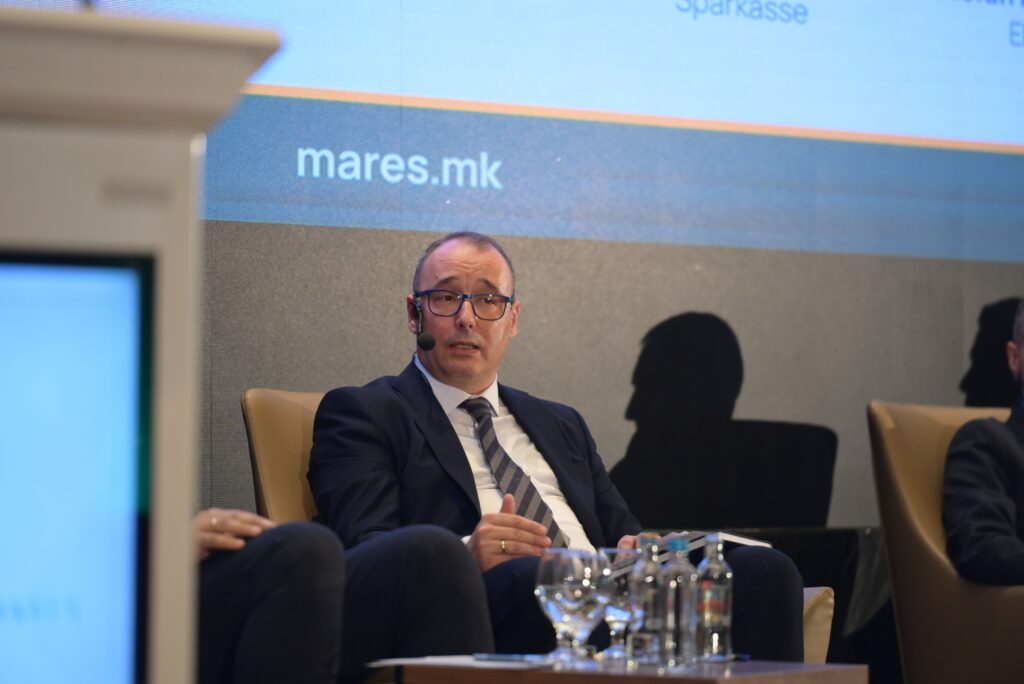
Petar Trpeski, Head of Corporate Clients Division at NLB Bank and Blagoja Ustijanovski, Director of Corporate Clients Division at Sparkasse Bank highlighted the banking sector’s growing focus on financing green projects. Trpeski emphasized the importance of green bonds, while Ustijanovski underlined Sparkasse’s increasing support for local renewable energy initiatives.
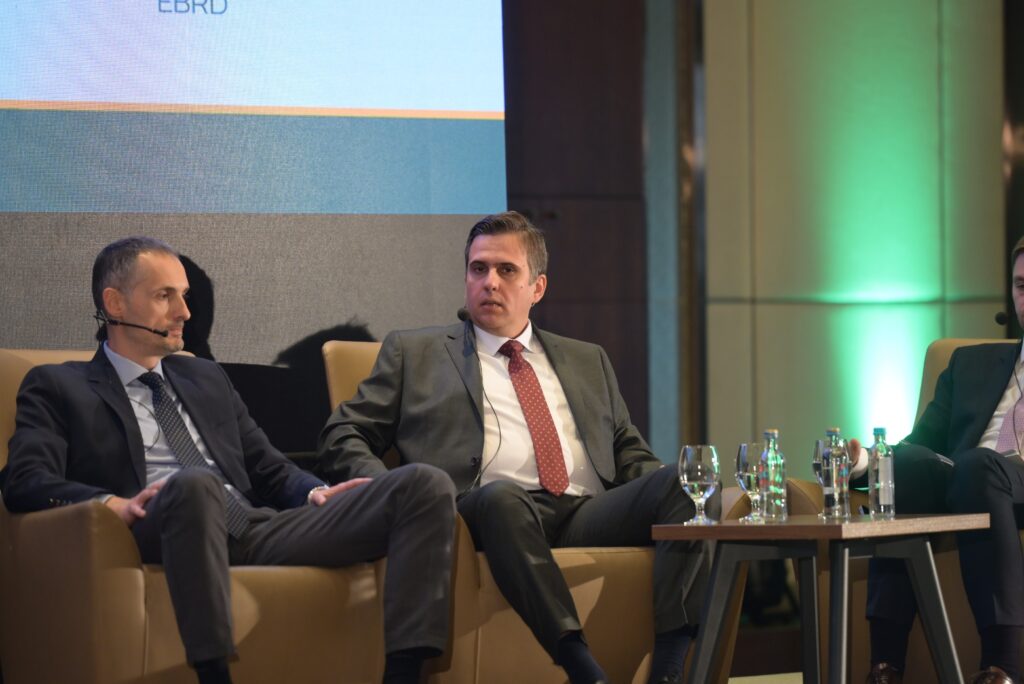
Stefan Kostovski, Principle Banker (EBRD) stressed the importance of market predictability for attracting foreign investment, especially in long-term projects and market-based agreements. Kostovski noted that the EBRD is providing technical assistance to the Ministry in selecting a consultant for CfD implementation, with the agreement expected to be signed by January 2025 and the first auction planned for late 2025.
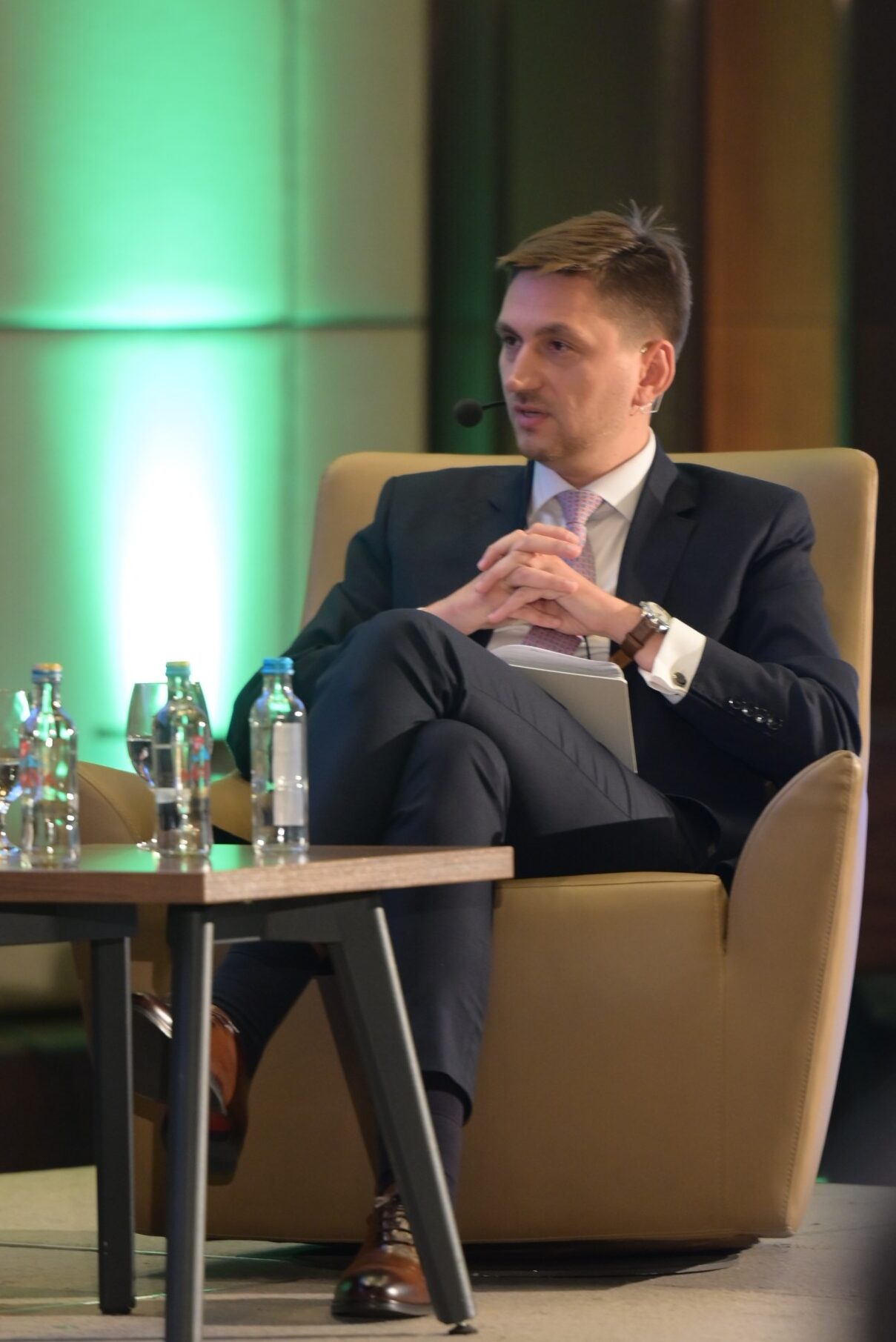
The discussion concluded with valuable insights into the challenges and opportunities for advancing renewable energy in the region, setting the stage for Panel 3, where we will share key takeaways on “Challenges and Solutions for the Energy Transition”
